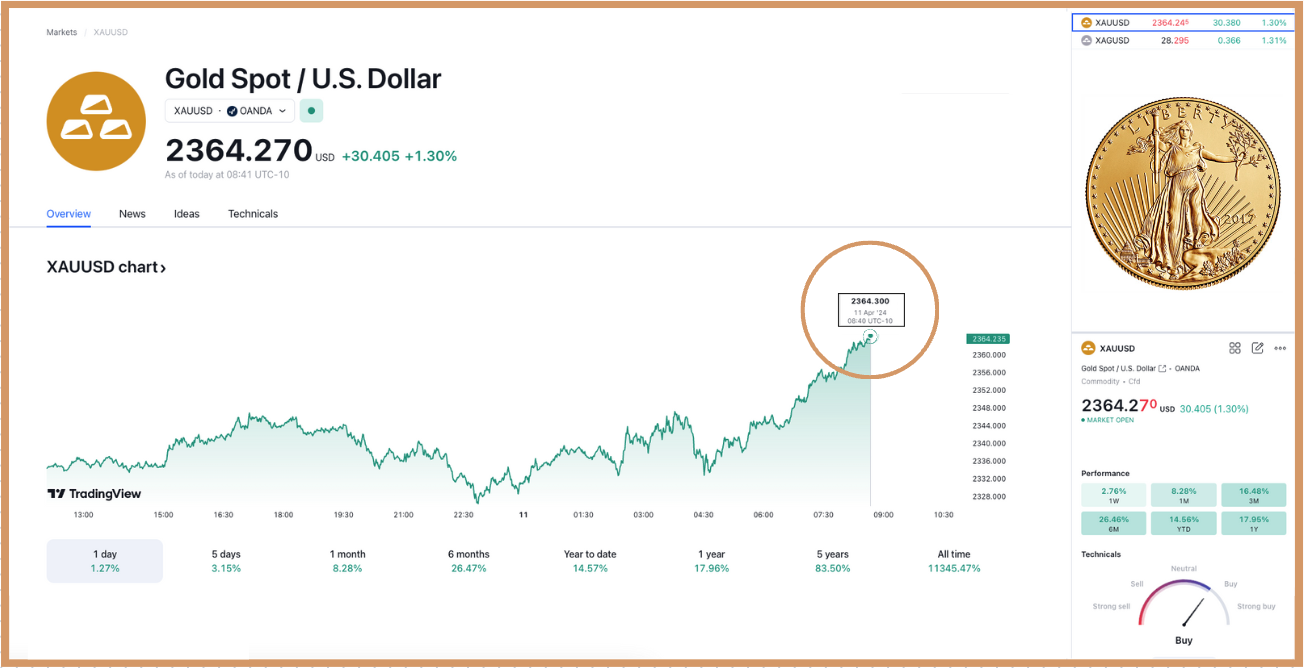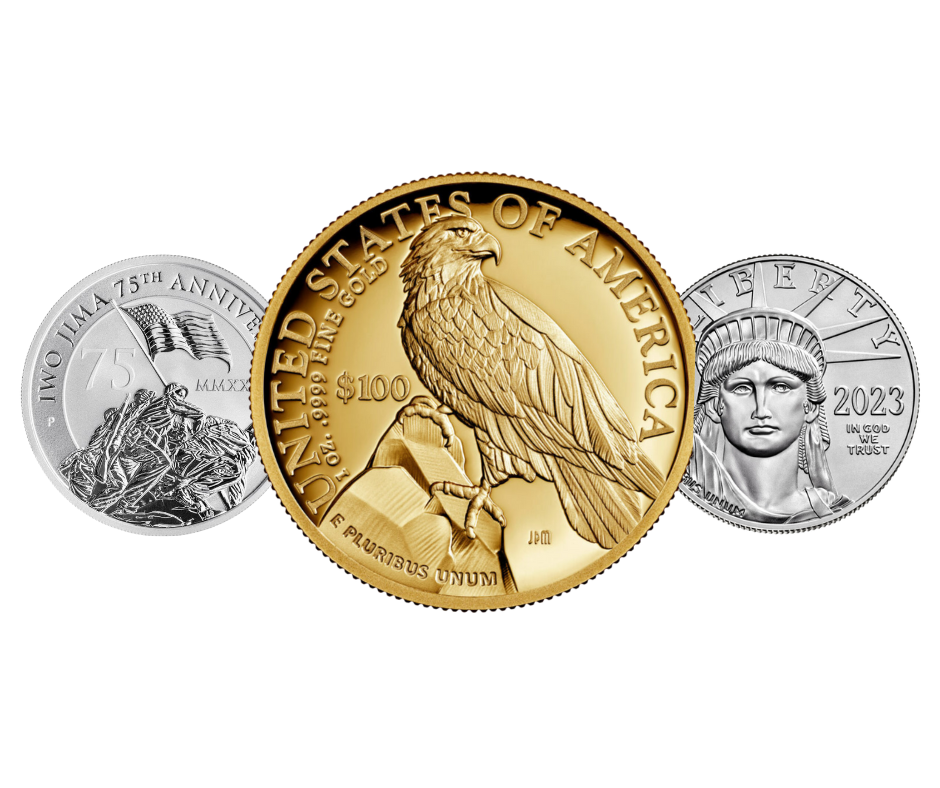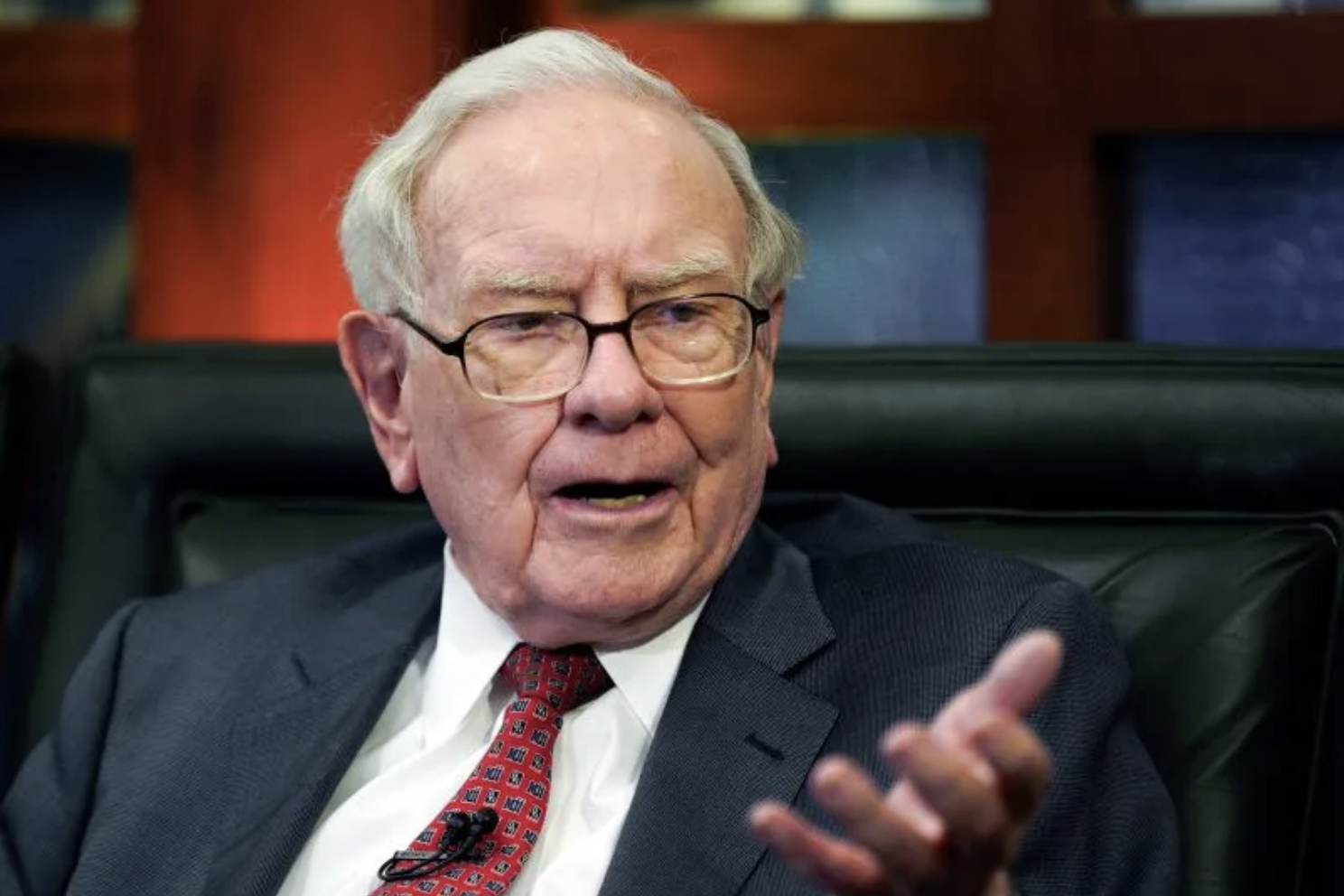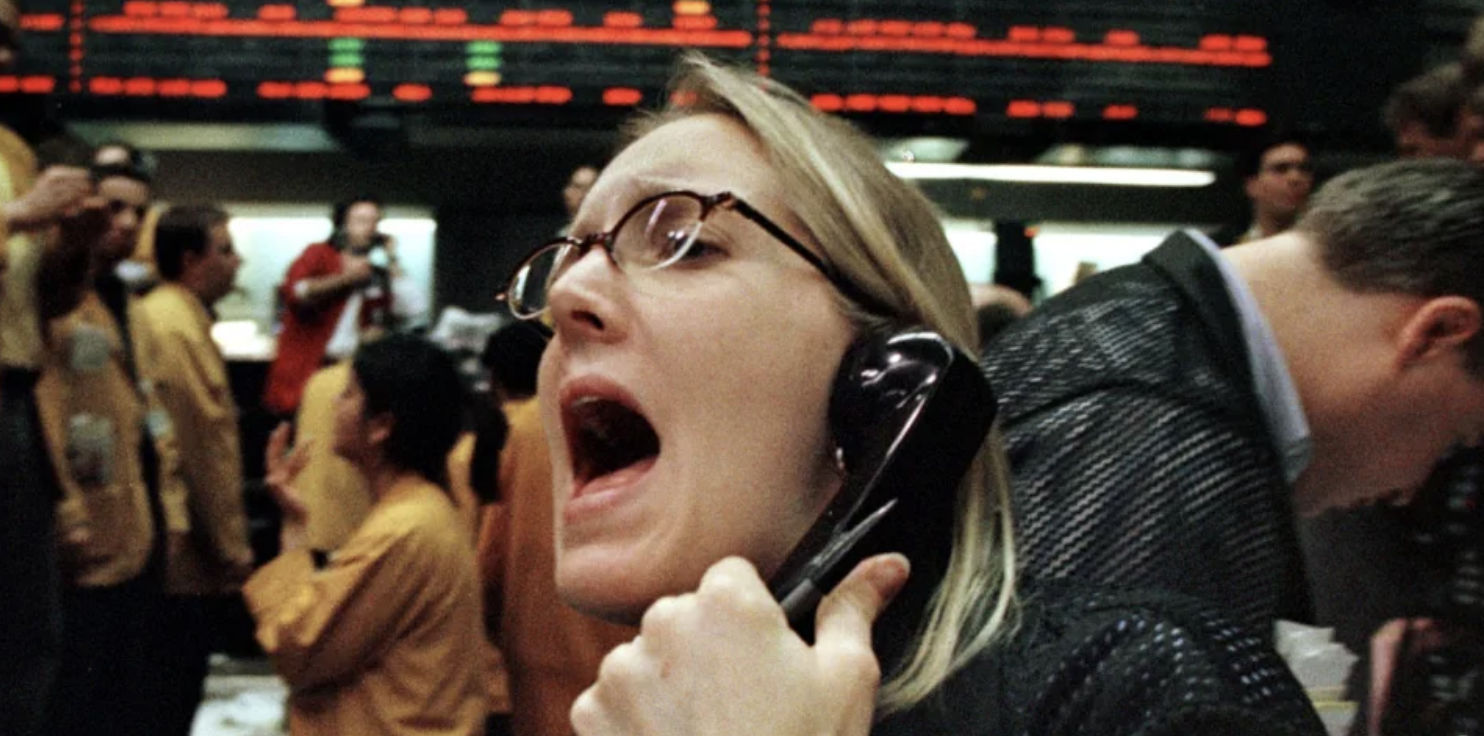Gold Hits New All-Time High Again!!

Gold has continued to rally to hit a new all-time high price of $2,375.26/oz on Thursday, April 11th. The gold and silver prices have been coiling over the past few months in preparation to propel higher and it seems that US data has released that spring.
Even though US inflation has increased month over month the last 3 months, a weakening US economy has freed the gold bulls in anticipation of US interest rate cuts, which will further an already declining Dollar. It now looks likely that interest rates will begin to fall in early summer, placing further downward pressure on the US$ and reinforcing gold's rally.
In the past week alone, the gold price has rallied more than 5.2%, while silver has returned more than 9.6%. As investors turn their attention back to precious metals, upwards momentum could continue.
Warren Buffett’s favorite market indicator is flashing red
The “Buffett Indicator” is flashing red.
In 2001, Warren Buffett came up with what he called in Fortune Magazine “probably the best single measure of where [stock] valuations stand at any given moment.”
Today that barometer has soared to a two-year high, signaling that a market retreat could be coming.
What’s happening: Widely known as the “Buffett Indicator,” it measures the size of the US stock market against the size of the economy by taking the total value of all publicly traded companies (measured using the Wilshire 5000 index) and dividing that by the last quarterly estimate for gross domestic product.
The resulting ratio is supposed to tell us how fairly priced stocks are by providing a simple gauge of whether the market is overvalued or undervalued relative to economic output. If the stock market is growing a lot faster than the economy, that could be a sign of a bubble.
Buffett’s Berkshire Hathaway says that a reading of 100% is fair, if it’s closer to 70% stocks are at a bargain price, and if it’s anywhere near the 200% mark, investors are “playing with fire.”
The indicator is currently sitting near a two-year high, at nearly 190%.
The last time the indicator was this high was in 2022, when it hit 211% and the S&P 500 dropped by 19% over the next year.
Bubble territory: Markets have surged higher this year as investor enthusiasm over artificial intelligence stocks have sent chipmakers like Nvidia to all-time highs.
Wall Street is also betting that there will be three interest rate cuts by the Federal Reserve this year, and investors have been preemptively celebrating.
But some analysts are ringing the alarm. They’re worried that AI fervor is misguided. Plus, two Fed officials have forecast no interest rate cuts at all this year.
“My impression is that investors are presently enjoying the double-top of the most extreme speculative bubble in US financial history,” legendary investor John Hussman wrote in a recent note. Hussman predicted the 2000 and 2008 market crashes.
Former Treasury Secretary Larry Summers also fretted over markets last week. “I certainly think we’re at least at the foothills of bubbles,” he said on Bloomberg.
Louis Navellier of Navellier & Associates thinks US markets are in a melt-up that’s being widely ignored by investors. “The market continues to march relentlessly higher and no one is willing to call a top,” he said in a note.
The S&P 500 has surged more than 10% since January, and last week it surpassed Goldman Sachs’ year-end target of 5,200. Analysts at the bank now say there’s a scenario where it could rise an additional 15% to 6,000 by the end of the year.
“As always, there are a lot fewer questions about why the market is up than there are when it trades down,” said Navellier.
Yes, but: The so-called Buffett Indicator is not without flaw. It ignores how much money companies make abroad and doesn’t consider how interest rates might change a company’s valuation. Buffett himself has conceded that the very simple metric has its limitations.
And while markets are frothy, they’re not exactly bubbling.
“This is not hype,” JPMorgan Chase CEO Jamie Dimon told CNBC last month about a potential AI bubble. “When we had the internet bubble the first time around… that was hype. This is not hype. It’s real,” he said. “People are deploying [AI] at different speeds, but it will handle a tremendous amount of stuff.”
The froth appears to be settling — about 23% of S&P 500 companies made a new 52-week high last week, and the equal-weighted S&P 500 is up by nearly 25% since its October 2023 low. That makes this market more “believa-bull,” quipped Kevin Gordon, senior investment strategist at Charles Schwab.
But, he told CNN, “we continue to think the market is vulnerable to a looming negative catalyst — particularly on the earnings front — given both attitudinal and behavioral sentiment metrics are in extreme optimism territory.”
The last trading day of the quarter falls on Thursday, and earnings reports begin in early April.



